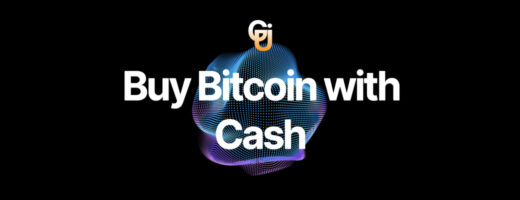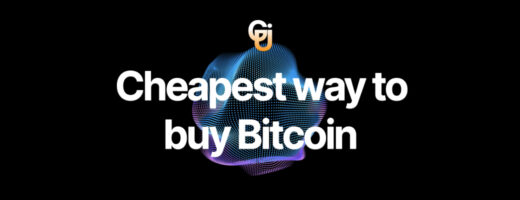- Blockchain Applications & Real-World Industry Use Cases (2023)
- Blockchain Applications and Industries Example
- 1) Smart Contracts
- 2) Supply Chain Tracking
- 3) Live Streaming Content & Sports Betting
- 4) Healthcare Records
- 5) Music Streaming & Data Access
- 6) Food Supply Chain Management
- 7) Vehicle History
- 8) Gambling
- 9) Real Estate & Property Management
- 10) Voting
- 11) Digital Identity
- 12) Humanitarian Aid
- Final Thoughts on the Blockchain Technology Applications
Blockchain Applications & Real-World Industry Use Cases (2023)
he applications of blockchain technology have been endless and will continue to grow as developers come up with new ideas every time. There are a variety of use-cases for all industries. One of the most popular applications for blockchain technology is smart contracts. Another great application of blockchain technology is its ability to create transparent data.
Blockchain Applications and Industries Example
In this article, we will discuss some of the most interesting applications of blockchain technology.
1) Smart Contracts
Smart Contracts are agreements between two parties, usually made without third-party involvement. It would be very useful in many financial transactions, like B2B, B2C, or consumer-to-consumers (sharing the economy).
A smart contract has some benefits over traditional legal contracts as they are faster, more efficient, and cheaper compared to standard contracts.
2) Supply Chain Tracking
The supply chain industry is facing problems daily because of the lack of transparency in transactions. Many food companies have had issues with contamination during shipping, causing massive recalls for products that are later thrown out and cannot be used anymore. Therefore, a transparent tracking system will help businesses not only save money but also help keep all their customers safe.
Consumers like to know what is going into their bodies and what type of labor goes into making a product before they buy it. The transparency provides visibility into production activities, safety standards, sourcing practices and much more.
This detailed information also allows them to cut costs and save time by preventing fraud and unneeded delays.
3) Live Streaming Content & Sports Betting
Streaming services have taken over the entertainment industry, with companies like Netflix taking over cable TV for many different reasons, such as better content selection, lower prices, etc.
But there is one issue with streaming services like Netflix and Hulu as they cannot provide live content. That means you may miss a show or an event and might have to watch it only after the full season is done airing.
For example, Flixxo uses blockchain technology to remove intermediaries like Hulu and YouTube and connect viewers directly with filmmakers using smart contracts and peer-to-peer file sharing. This effect is lower prices for consumers and higher payouts for those who produce original content.
Another blockchain example is the sports betting industry. There will be a surge in this field as all bets are placed on a blockchain network. It will benefit this industry by reducing operation costs and increasing the security of all transactions.
4) Healthcare Records
The US spends over $4.3 trillion on the healthcare sector per year, but this also comes with a downside as there are no specific national healthcare record systems. Unlike some other countries like Canada, UK, and Australia.
This creates an issue where patients cannot find their medical records when they change facilities or doctors, and many recent inefficient care and higher prices because of duplication of services.
Patients usually have to wait until they visit a doctor’s office before getting treatment. At that time, valuable time is wasted while your health is at risk. Blockchain technology has the potential to solve these problems because all transactions are secure and auditable by anyone with access.
5) Music Streaming & Data Access
Over the last decade, music streaming has taken over album sales, thanks partly to services like Spotify, which allow users to listen to any song on demand for a low monthly fee. But there are some issues with the current model that leaves musicians short-changed by not being paid fairly or receiving credit for their work in most blockchain-use cases.
With thousands of people uploading new content daily, it becomes difficult for record companies to give proper credit and payment to artists. Also, with the sheer amount of content on these streaming services, they contain songs that aren’t supposed to be on there or have been released under exclusive contract.
Blockchain technology could save the recording industry billions of dollars by allowing users to pay directly for what they want instead of extraneous costs like marketing and distribution.
6) Food Supply Chain Management
When buying food at our local supermarket, most people don’t think about where it came from before it reaches its final destination at your local grocery store shelves, or local Walmart store.
This is not because people are oblivious to the process. It’s because it is often quite complex. Several processes take place before the food arrives at the grocery store.
- First, farmers must grow crops, meaning they need money, equipment, and land to make this happen.
- Secondly, farmers need workers to help them prepare their products for harvest or transport them into cities where supermarkets can buy supplies.
There are also costs associated with transportation, including fuel prices, along with additional staff needed to manage these operations effectively.
However, using a transparent supply chain would be very beneficial because it will give companies and customers the proximity and insight, they need to build trust and transparency around what they buy.
7) Vehicle History
We’ve all heard about lemon cars before, where someone ends up with a car that won’t start or was in an accident but never reported to insurance, leaving you high and dry if something goes wrong. Even though laws state that every car sold should have a vehicle history report, this information is not always correct or accessible to buyers who may be interested in buying your used car.
A blockchain-based system could provide proof of sales records for any given vehicle, whether it’s just been serviced at a dealership or has had many accidents over its lifetime. It also allows insurance managers to determine how much to charge for premiums.
This system is also useful for cars that may have been stolen, which help owners recover their rides faster than ever before.
8) Gambling
The gambling industry is a huge market that generates over $500 billion yearly. However, it has serious flaws, including cheating and unfair house advantage for casinos, even with random number generators (RNG). Blockchain can help resolve these issues by providing transparency that allows anyone to audit games without having direct access to back-end servers or databases.
It increases trust and reduces instances of fraud, which bring down profits overall. Most importantly, blockchain can provide provable fairness regarding outcomes to reduce cost for players and casinos.
9) Real Estate & Property Management
Blockchain provides a secure platform for data transmission that can significantly reduce fraud, especially in large metro areas where real estate deals are often complex and prone to human error.
This technology allows users access to their information from any device from anywhere in the world at any time. As they have full control over their digital documents without needing to interact with a third-party company that may provide your info to others outside of the service you hired them for.
10) Voting
The US election process is complex and controversial, leaving many people across the country feeling like their vote doesn’t count, especially in voter fraud cases. Blockchain can help solve this problem by offering a secure platform for voting that will allow hackers limited access to information because each transaction on the network is encrypted.
The technology could also provide better insight into campaigns, including total advertising budgets, how much money goes towards staff salaries, etc.
11) Digital Identity
Digital Identity is the online trail we leave behind after years of browsing. Most people have dozens, if not hundreds, of accounts across various platforms, from social media to music streaming services, that could compromise your information, making you worse at risk for identity theft.
A blockchain system would give you complete control over your digital Identity. It allows you to share information according to the features they use without sacrificing quality and ease-of-use which is necessary, especially with younger generations who have grown up in this technology-driven world.
12) Humanitarian Aid
During its rise to fame, Bitcoin was often considered a tool for terrorists and criminals. However, after the Dominican Republic government announced it would use blockchain technology to aid in its humanitarian efforts, other organizations worldwide use it to help poor people.
This includes refugees from war-torn countries, which are very vulnerable because they often lack the documentation needed to apply for legitimate aid packages making them prime targets for traffickers or slave traders.
Final Thoughts on the Blockchain Technology Applications
Blockchain technology as we know is still in its beginning stage, it has years of development to come before it becomes widely accepted by consumers.
However, that also means there might be some risks involved in investing in the future of blockchain, including the risk that cryptocurrency could possibly go extinct.




